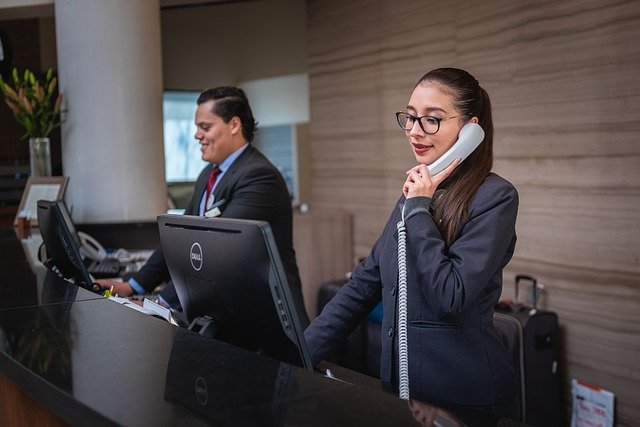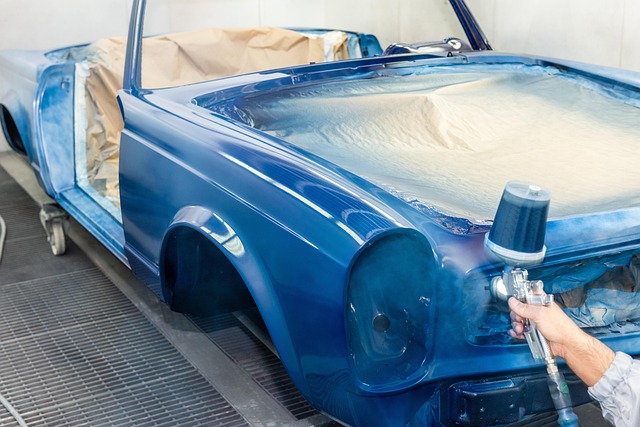Hotel Housekeeping: Roles, Responsibilities, and Career Advancement
Careers in hotel housekeeping provide steady opportunities for individuals interested in maintaining clean, welcoming spaces for guests. This role plays an important part in hospitality, offering valuable experience and practical skills in a professional setting.

Hotel housekeeping represents the backbone of guest satisfaction in the hospitality industry. While often working behind the scenes, housekeeping staff ensure that every aspect of a hotel’s cleanliness and presentation meets exacting standards. This essential department not only maintains the physical appearance of the property but also contributes significantly to guest experiences, reviews, and ultimately, the hotel’s reputation and success.
Key Roles and Responsibilities in Hotel Housekeeping
Housekeeping professionals fulfill various crucial functions within hotel operations. Room attendants, the most numerous position within the department, are responsible for cleaning and preparing guest rooms according to specific standards. Their duties include making beds with fresh linens, sanitizing bathrooms, vacuuming floors, dusting surfaces, and restocking amenities. Public area attendants maintain cleanliness in lobbies, hallways, meeting rooms, and other common spaces. Laundry attendants manage the cleaning of linens, towels, and uniforms, operating industrial washing and drying equipment while ensuring proper handling of different fabric types.
Supervisory roles include floor supervisors who oversee room attendants, conduct quality checks, and address guest concerns related to room cleanliness. Housekeeping coordinators manage inventory of cleaning supplies and guest amenities while coordinating schedules and special requests. Executive housekeepers develop department policies, manage budgets, hire and train staff, and collaborate with other hotel departments to ensure seamless operations.
Professional Growth Opportunities in Hotel Housekeeping
Contrary to common misconceptions, housekeeping offers substantial professional growth potential. Entry-level positions provide foundational experience that can lead to supervisory roles within 1-2 years for dedicated employees. Many hotels offer internal training programs focused on developing leadership skills, advanced cleaning techniques, inventory management, and guest service excellence. These programs help housekeeping staff transition from operational to management positions.
Professional certifications such as the Certified Hospitality Housekeeping Executive (CHHE) from the American Hotel & Lodging Educational Institute can significantly enhance career prospects. Similarly, specialized training in areas like sustainable cleaning practices or luxury hotel standards can position staff for advancement in specific hotel segments.
Cross-training opportunities allow housekeeping professionals to develop skills in related departments such as laundry management, front office operations, or facilities maintenance. This versatility makes employees more valuable to employers and opens additional advancement pathways within the broader hospitality industry.
Career Advancement Paths in Hotel Housekeeping
The housekeeping department offers a structured career ladder with multiple advancement opportunities. The typical progression begins with entry-level positions such as room attendant or public area cleaner, advancing to team leader or floor supervisor roles with experience. These positions involve overseeing small teams and ensuring quality standards are maintained.
Assistant executive housekeeper positions represent the next step, involving broader management responsibilities including scheduling, inventory control, and staff training. This mid-management role provides crucial experience for those aspiring to executive positions. The executive housekeeper oversees the entire housekeeping operation, managing budgets, developing department strategies, and participating in hotel-wide management decisions.
For those seeking broader career paths, housekeeping experience can translate to opportunities in hotel operations management, facilities management, or even transitioning to other hospitality sectors such as cruise lines or healthcare facilities. Many successful hotel general managers began their careers in housekeeping departments, demonstrating the potential for significant career advancement.
Developing Essential Skills for Housekeeping Career Success
Advancing in hotel housekeeping requires developing both technical and soft skills. Attention to detail represents perhaps the most crucial quality, as maintaining consistent cleanliness standards directly impacts guest satisfaction. Time management skills are equally important, as housekeeping staff must efficiently clean numerous rooms or areas within specific timeframes without compromising quality.
Communication abilities become increasingly valuable as staff advance to supervisory positions, requiring clear instruction delivery and effective interaction with guests and other departments. Problem-solving capabilities help address unexpected situations, from difficult stains to managing room turnover during high-occupancy periods.
Leadership skills become essential for advancement beyond entry-level positions. This includes the ability to motivate teams, provide constructive feedback, and maintain department morale. Technical knowledge of cleaning chemicals, equipment operation, and safety protocols also distinguishes candidates for promotion.
Building a Successful Long-term Housekeeping Career
Creating a successful long-term career in hotel housekeeping requires strategic planning and continuous professional development. Establishing relationships with mentors within the industry can provide valuable guidance and potentially open doors to advancement opportunities. Many successful housekeeping executives credit mentorship as a key factor in their career progression.
Pursuing relevant education through hospitality management courses, whether through community colleges, online programs, or hotel-sponsored training, demonstrates commitment to the profession. Even without formal education, developing specialized knowledge in areas like sustainable practices or luxury standards can create advancement opportunities.
Networking within professional organizations such as the International Executive Housekeepers Association (IEHA) connects professionals with industry peers and potential employers. These organizations often provide continuing education, certification opportunities, and job boards specific to housekeeping careers.
Adapting to technological changes represents another important aspect of career longevity. Modern housekeeping departments increasingly utilize property management systems, digital inventory tracking, and communication platforms. Professionals comfortable with these technologies position themselves for advancement as departments continue to modernize.
Hotel housekeeping offers rewarding career paths for those who recognize its potential beyond entry-level positions. With structured advancement opportunities, professional development options, and transferable skills, housekeeping professionals can build sustainable careers in the hospitality industry. The combination of technical expertise, leadership abilities, and dedication to service excellence creates a foundation for long-term success in this essential hotel function.




